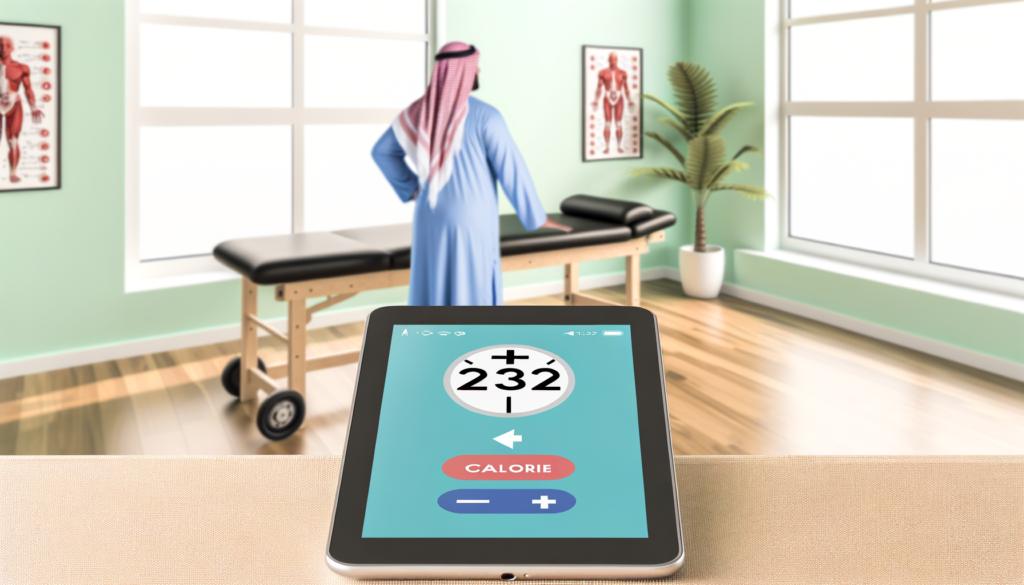Enhancing Credibility Through Digital Health Tools
In today’s digital age, health websites strive to offer not just information but also a trusted experience that encourages users to return and engage. One of the most powerful ways to build trust with calculators on health platforms is by integrating accurate health calculators—tools designed to provide personalized, evidence-based insights for users. These calculators range from calorie counting and BMI calculators to comprehensive nutrition and clinical assessment tools. When these features are implemented professionally, they significantly boost a site’s perceived reliability and user confidence.
How Reliable Nutrition Tools Foster User Confidence
Users who access health websites are often seeking guidance that influences decisions on diet, exercise, and overall wellness. By incorporating Calorie Calculator Cloud, a widely recognized and precise nutrition calculator plugin, websites ensure that visitors receive tailored feedback based on their inputs such as weight, activity level, and goals. This level of personalization makes the information feel trustworthy and actionable.
Reliable nutrition tools offer several benefits that contribute to establishing trust:
- Transparency in Calculations: Clearly displayed formulas and rationale behind the calculations reassure users that the data is scientific and not arbitrary.
- Consistency of Results: Consistent outputs, when cross-checked with known standards like the USDA’s MyPlate guidelines or scientifically validated metabolic rate equations, increase confidence in the tool’s accuracy.
- Evidence-Based Foundations: Tools built on peer-reviewed research or accepted clinical guidelines stand out as professional and authoritative.
For example, the British Nutrition Foundation endorses digital tools that combine validated science with easy user interfaces, highlighting the importance of accessible yet dependable calculators for nutritional assessments.
Professional Website Features That Enhance Engagement
Besides accuracy, the design and interaction quality of a calculator affect user trust. Professional health websites leverage the following design elements to create positive user experiences:
- Interactive Interfaces: Dynamic calculators that respond in real-time as users input their data, such as macros or calorie goals, keep users engaged and provide immediate gratification.
- Clear Instructions and Feedback: Simple step-by-step guides for data entry and contextual explanations of results empower users to understand and trust the outcomes.
- Mobile Optimization: With the surge in mobile health app usage, calculators that function seamlessly on smartphones and tablets demonstrate an attention to accessibility and user convenience.
- Security and Privacy Notices: Disclosing how user data is handled boosts trust, especially in health contexts where sensitivity is high. This aligns with findings in research on privacy and trust in eHealth platforms emphasizing the role of transparent information in trust-building.
Accompanying features like integration with meal planners or fitness trackers can turn a standalone calculator into a hub for ongoing health management, reflecting a professional and comprehensive approach.
Real-World Impact: Case Studies of Trust Through Calculators
Major health-related sites and organizations have successfully increased user trust and satisfaction through calculators. Consider Kaiser Permanente, which ranks highly in user experience partly by embedding easy-to-use BMI and health risk calculators into their patient portals. According to studies, tools providing personalized risk and expectation estimates help patients feel more informed during medical decisions.
Similarly, platforms like Healthline and Mayo Clinic offer interactive tools that help users estimate caloric needs or understand lifestyle impacts on health. These calculators not only retain visitors longer but also increase users’ trust in the site’s medical advice and recommendations.
Another powerful example is how clinical care rapidly benefits from web-based calculators. Research indicates that when patients can see evidence-based outcome probabilities through trusted tools, they report greater satisfaction and confidence in treatment decisions, even if providers exhibit some initial skepticism about the tool’s validity.
The Psychology Behind User Trust and Calculators
Trust in digital health is multifaceted and influenced by various factors. At its core, however, users seek calculators that offer both transparency and accuracy. The ability for individuals to input their own data and receive customized results fosters a sense of control and reliability.
Additionally, perceptions of professionalism, consistency, and evidence-backed content on the host website translate into higher trust scores. Research on website experience quality shows that sites with superior user experience scores, including trust dimensions, tend to have higher revisit rates and stronger user loyalty. A site like Calorie Calculator Cloud supports these outcomes by providing scalable, customizable calculators that meet industry standards and user expectations.
Implementing Accurate Health Calculators: Best Practices
Health website owners should consider the following when integrating calculators to maximize trust and user confidence:
- Validate Algorithms: Use clinically validated formulas and regularly update calculations based on latest scientific evidence.
- Provide Supporting Evidence: Include references or links to research underlying the calculator’s algorithms to enhance perceived legitimacy.
- Enable User Feedback: Allow users to comment on or report inconsistencies to continually improve tool accuracy and responsiveness.
- Ensure Accessibility: Follow web accessibility guidelines (WCAG) to ensure all users, including those with disabilities, can use tools effectively.
- Integrate with Holistic Health Solutions: Link calculators with meal plans, workout routines, or health coaching platforms to create an ecosystem that supports sustained engagement.
Looking Ahead: The Future of Trust in Digital Health
With growing awareness about data privacy and the influx of health-related misinformation online, accurate and professionally designed calculators are more important than ever. They serve as beacons of reliability within crowded digital landscapes. Emerging approaches combining artificial intelligence with interactive calculators promise even more personalized and trustworthy user experiences.
To remain competitive and genuinely helpful, health websites must continue adopting sophisticated tools like those available on Calorie Calculator Cloud. Reliable health calculators not only empower users to take ownership of their wellness journey but also cement the site’s reputation as a professional and authoritative resource.
Final Thoughts
In sum, accurate health calculators and reliable nutrition tools are critical features that build trust with calculators embedded in health websites. When combined with professional website design and transparent data practices, these tools significantly enhance user confidence. Whether it’s estimating calorie intake, calculating body composition, or evaluating health risks, sophisticated calculators create a meaningful connection between users and providers of digital health information.
If you’re a health website owner or developer aiming to elevate your platform’s trustworthiness and user engagement, consider integrating proven solutions like Calorie Calculator Cloud. Explore their Calorie Calculator Plans tailored to various needs and start delivering dependable, user-centric features today.
Explore more on trusted healthcare resources such as CDC for wellness guidelines, Nutrition Data for deep nutritional insights, and WHO for global health trends to build a robust knowledge foundation supporting your tools and content.








